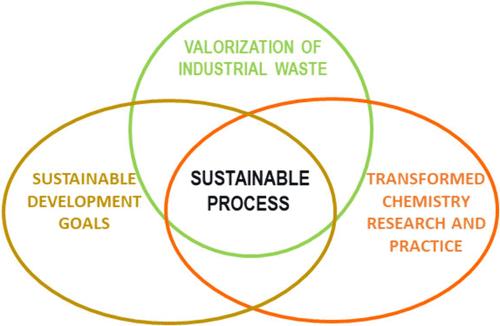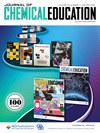Integration of Teaching Laboratory Activities Based on the Valorization of Industrial Waste into Chemical Education to Address the Emerging Sustainable Development Goals
IF 2.5
3区 教育学
Q2 CHEMISTRY, MULTIDISCIPLINARY
引用次数: 0
Abstract
The integration of learning strategies based on the valorization of industrial waste into education is crucial for students to raise awareness of climate change causes and to thrive in the emerging circular bioeconomy. An attractive laboratory experiment focused on the production of second generation bioethanol from apple pomace is proposed. With this approach, undergraduate students of technological specialties explore real routes for the valorization of industrial food wastes. The activity allows them to become aware of the current energy outlook, the causes of climate change, and Sustainable Development Goals (SDGs) of the 2030 Agenda. Moreover, the proposal facilitates acquisition of chemical, technological, and mathematical knowledge and incorporation of important skills and competencies in future professional activities. In this way, students will promote social changes that guarantee the protection of the environment and improve the quality of life, in line with the Education for Sustainable Development (ESD).

将基于工业废物价值化的教学实验活动纳入化学教育,以实现新的可持续发展目标
将基于工业废物价值化的学习策略纳入教育,对于学生提高气候变化原因的认识和在新兴的循环生物经济中茁壮成长至关重要。我们提出了一个有吸引力的实验室实验,重点是利用苹果渣生产第二代生物乙醇。通过这种方法,技术专业的本科生可以探索工业食品废料价值化的真正途径。通过这项活动,他们可以了解当前的能源前景、气候变化的原因以及 2030 年议程的可持续发展目标(SDGs)。此外,该提案还有助于学习化学、技术和数学知识,并将重要的技能和能力融入未来的职业活动中。通过这种方式,学生将根据可持续发展教育(ESD)促进社会变革,以确保保护环境和提高生活质量。
本文章由计算机程序翻译,如有差异,请以英文原文为准。
求助全文
约1分钟内获得全文
求助全文
来源期刊

Journal of Chemical Education
化学-化学综合
CiteScore
5.60
自引率
50.00%
发文量
465
审稿时长
6.5 months
期刊介绍:
The Journal of Chemical Education is the official journal of the Division of Chemical Education of the American Chemical Society, co-published with the American Chemical Society Publications Division. Launched in 1924, the Journal of Chemical Education is the world’s premier chemical education journal. The Journal publishes peer-reviewed articles and related information as a resource to those in the field of chemical education and to those institutions that serve them. JCE typically addresses chemical content, activities, laboratory experiments, instructional methods, and pedagogies. The Journal serves as a means of communication among people across the world who are interested in the teaching and learning of chemistry. This includes instructors of chemistry from middle school through graduate school, professional staff who support these teaching activities, as well as some scientists in commerce, industry, and government.
 求助内容:
求助内容: 应助结果提醒方式:
应助结果提醒方式:


